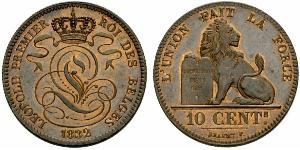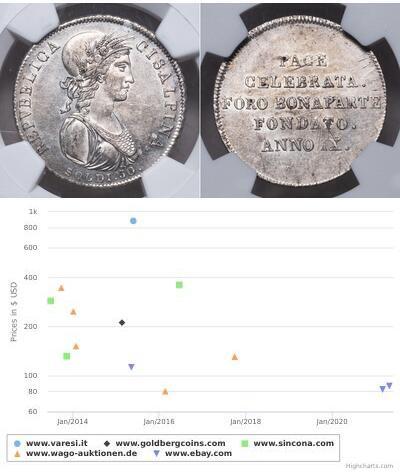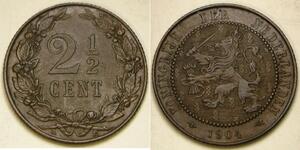1301-1314, Silesia, Bernard, Henry & Bolko II. Important Siver Denar Coin. R5!


Mint Period: 1301-1314
Reference: Kopicki 5784 (R5!)
Denomination: Denar (1/4 Grossus)
Mint Place: Lwówek Śląski (Löwenberg)
Rulers: Bernard, Henry & Bolko II (the three sons of Bolko I.)
Condition: Scratches in reverse, weakness of strike (as often encountered with this coinage), otherwise a decent and well-centered VF-aXF!
Diameter: 19mm
Weight: 1.61gm
Material: Silver
Obverse: Heraldic helmet with six feathers left. ALl within inner circle.
Legend:
+ GALEA . DVCVM . SLESIE
Reverse: Shield with arms of Silesia within inner circle.
Legend: + IVVENVM . BOLKONVM .
 Bernard (II) of Świdnica (Polish: Bernard świdnicki) (c. 1291 – 6 May 1326) was a Duke of Jawor-Lwówek-Świdnica-Ziębice between 1301–1312 (with his brothers as co-rulers, Henry I of Jawor and Bolko II of Ziebice), of Świdnica-Ziębice during 1312–1322 (with his brother as co-ruler), and the sole Duke of Świdnica from 1322 until his death. He was the second son of Bolko I the Strict, Duke of Jawor-Lwówek-Świdnica-Ziębice, by his wife Beatrix, daughter of Otto V the Long, Margrave of Brandenburg-Salzwedel. Henry I of Jawor (Polish: Henryk; c. 1292/96 – 15 May 1346), was a duke of Jawor-Lwówek-Świdnica-Ziębice during 1301–1312 (with his brothers as co-rulers), sole Duke of Jawor-Lwówek since 1312 and Duke of Głogów since 1337 until his death. He was the third son of Bolko I the Strict, Duke of Jawor-Lwówek-Świdnica-Ziębice, by his wife Beatrix, daughter of Otto V the Long, Margrave of Brandenburg-Salzwedel. Bolko II of Ziębice (Polish: Bolko II Ziębicki; 1 February 1300 – 11 June 1341) was a Duke of Jawor-Lwówek-Świdnica-Ziębice in Poland from 1301 to 1312 (with his brothers as co-rulers), of Świdnica-Ziębice from 1312 to 1322 (with his brother as co-ruler), and sole Duke of Ziębice from 1322 until his death.
Bernard (II) of Świdnica (Polish: Bernard świdnicki) (c. 1291 – 6 May 1326) was a Duke of Jawor-Lwówek-Świdnica-Ziębice between 1301–1312 (with his brothers as co-rulers, Henry I of Jawor and Bolko II of Ziebice), of Świdnica-Ziębice during 1312–1322 (with his brother as co-ruler), and the sole Duke of Świdnica from 1322 until his death. He was the second son of Bolko I the Strict, Duke of Jawor-Lwówek-Świdnica-Ziębice, by his wife Beatrix, daughter of Otto V the Long, Margrave of Brandenburg-Salzwedel. Henry I of Jawor (Polish: Henryk; c. 1292/96 – 15 May 1346), was a duke of Jawor-Lwówek-Świdnica-Ziębice during 1301–1312 (with his brothers as co-rulers), sole Duke of Jawor-Lwówek since 1312 and Duke of Głogów since 1337 until his death. He was the third son of Bolko I the Strict, Duke of Jawor-Lwówek-Świdnica-Ziębice, by his wife Beatrix, daughter of Otto V the Long, Margrave of Brandenburg-Salzwedel. Bolko II of Ziębice (Polish: Bolko II Ziębicki; 1 February 1300 – 11 June 1341) was a Duke of Jawor-Lwówek-Świdnica-Ziębice in Poland from 1301 to 1312 (with his brothers as co-rulers), of Świdnica-Ziębice from 1312 to 1322 (with his brother as co-ruler), and sole Duke of Ziębice from 1322 until his death.

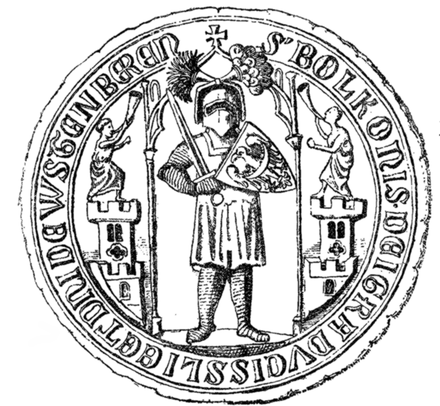
He was the second son of Bolesław II the Bald, Duke of Legnica by his first wife Hedwig, daughter of Henry I, Count of Anhalt.
Most likely because he was still too young to actively participate in politics, Bolko appears rarely in the chronicles before his father's death. It is possible that he took part in the victorious Battle of Stolec in 1277.
Bolesław II died on 26 December 1278. Bolko I and his younger brother Bernard the Lightsome inherited Jawor (Jauer) and Lwówek (Löwenberg) as co-rulers, and their older brother Henry V the Fat retained Legnica. In 1281 Bolko I and Bernard divided their domains: Bernard kept Lwówek, and Bolko I became in sole ruler of Jawor.
One of the first tasks of Bolko I as sole ruler was to protect his modest inheritance from the growing power of Henry IV Probus, Duke of Wroclaw. To that end, he decided to enter into an alliance with the Margraves of Brandenburg. In order to cement this alliance, a marriage was arranged between Bolko I and Beatrice, the daughter of Margrave Otto V the Tall of Brandenburg. The betrothal was performed in the city of Spandau on 19 April 1279; however, because of the close relationship between groom and bride, the formal wedding was performed more than five years later, in 1284 (although the Papal dispensation to allow the wedding was announced only one year later, in 1285). Bolko I's relation to the House of Ascania engaged him in an armed conflict with the German King Rudolf I of Habsburg and Henry IV Probus. An expedition made on Wroclaw in 1280 and on Prague in the following year, instead of expected successes, brought him a retaliatory action from the Duke of Wroclaw.
After the death of his brother Bernard in 1286 without issue, Bolko I inherited the Duchy of Lwówek, by virtue of a reciprocal inheritance treaty signed by the brothers around 1281.
In the second half of the 1280s, Bolko I tried to avoid the dangers from the rising power of Henry IV Probus and began to approach the King Wenceslaus II of Bohemia. On several occasions, he travelled to Prague and took part in many court ceremonies, for example in 1289, when Bolko I took part in the homage of Duke Casimir of Bytom to King Wenceslaus II. However, despite the fact that Bolko I strongly resisted the complete dominance of Prague, he received minor benefits from the Kingdom of Bohemia, such as the possession of the strategical Schömberg Castle (now Chełmsko Śląskie) on the Bohemian frontier.
The unexpected death of Henry IV Probus in 1290 caused a complete change in Silesian politics. Bolko I's brother Henry V the Fat occupied Wroclaw and took control of all of Henry IV's domains, but had to face the opposition of the Wroclaw nobility and the pretensions of the rightful heir of Henry IV, Duke Henry III of Głogów. Bolko I decided to give his brother assistance; however, the price for it was quite high. Only after Henry V give him the towns of Świdnica, Ząbkowice, Ziębice and Strzelin Bolko I sent troops and food to Wroclaw and Legnica. The help for Henry V, however, was inadequate; at the end, Henry V was defeated and imprisoned in an iron cage by Henry III. Named regent of Henry V's domains during his absence, Bolko I never attempted to obtain the release of his brother.
The 1290s were also a period of difficult relations with the neighboring Kingdom of Bohemia. It's unknown why relations between them altered, but this could be probably thanks to the willingness of the Duke of Jawor-Świdnica. Bolko I, in order to secure his domains, began the intensive building of fortifications in his Duchy (particularly in the Bohemian frontier towns of Świdnica, Wleń, Strzegom and Kamienna Góra). After this, Bolko I tried to take full control over the Duchy of Nysa-Otmuchów, given to the Bishopric of Wroclaw in Henry IV's will.
Resentful of Bolko I's ambitions, Bishop Jan Romka decided to use the biggest weapons available to him against the Duke: in 1294 Bolko I was excommunicated, and all his lands were placed under interdict. Forced by this actions, Bolko I renounced his pretensions and freed the Bishop's castles that he had occupied.
The tensions between Bolko I and King Wenceslas II finally erupted in 1295 and war began. The Bohemian King didn't expect a significant resistance; however, to his great surprise, he had to watch the effective defense of the Duke of Jawor. In the war with Bohemia, Bolko I could use the fortifications built by him (the Bohemian army was stopped at Kamienna Góra). Bolko I also demonstrated that he was a wise politician; immediately after stopping the Bohemian troops, he put his domains under the protection of Pope Boniface VIII, which eventually led King Wenceslaus II to seek a settlement. The peace was signed probably at the beginning of 1297, since on 2 June of that year Bolko I was present at the coronation of King Wenceslaus II in Prague.
At the beginning of 1296 Henry V the Fat died, leaving three minor sons. As the closest male relative, the guardianship of Henry V's children and the regency of his domains were given to Bolko I. In this situation Bolko I tried to extract all the benefits he could and took for himself Sobótka castle. Bolko I's regency had to face several difficulties: first, the resistance of the powerful Wrocław nobility, who feared that the well-known Bolko I's hard rule could affect their privileges. Soon, Henry III of Głogów decided to exploit the difficulties of the Duke of Jawor and began a war against him. However, in this instance, Bolko I achieved a complete success, not only because he managed to repel the invasion of the Duke of Głogów, but additionally he managed to take the castles of Chojnów and Bolesławiec.
Bolko was energetic in developing his lands and building castles. Although a Slavic Piast by origin, he encouraged colonization of his lands by German settlers and a patron of the Cistercian movement, notably founding the Cistercian monastery of Grüssau (Krzeszów).[2]
He was a patron of literature. An 8000 line poem in Middle High German on the exploits of Ludwig III, Count of Thuringia, was composed by an unnamed priest at Bolko's instigation.
To resolve the tense situation in Upper Silesia, by March 1297 an annual congress of Silesian Dukes in Zwanowicach was convened, where Bolko I made the final settlement with Henry III. Bolko I spent the last years of his life strengthening his position as the most powerful of the Silesian princes, which he achieved after his recognition as a Papal vassal on 21 March 1299.
Bolko I died suddenly on 9 November 1301 and was buried in Krzeszów Abbey. He was succeeded by his sons, but because they were minors at that time, his brother-in-law Herman, Margrave of Brandenburg-Salzwedel assumed the regency of his domains and the guardianship of his children. The custody of Henry V's sons and the regency of his lands was taken by King Wenceslaus II.
22 coins were grouped from 2025-06-11 to 2025-06-18
Una di queste è:
2 1/2 Cent Paesi Bassi
il gruppo ha 18 monete / 14 prezzi
⇑

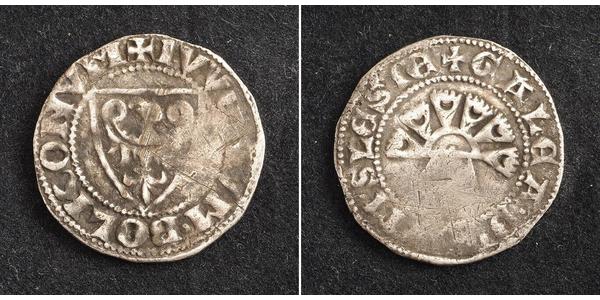


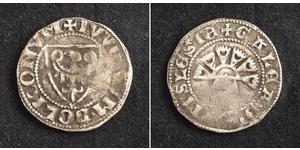
 English
English

